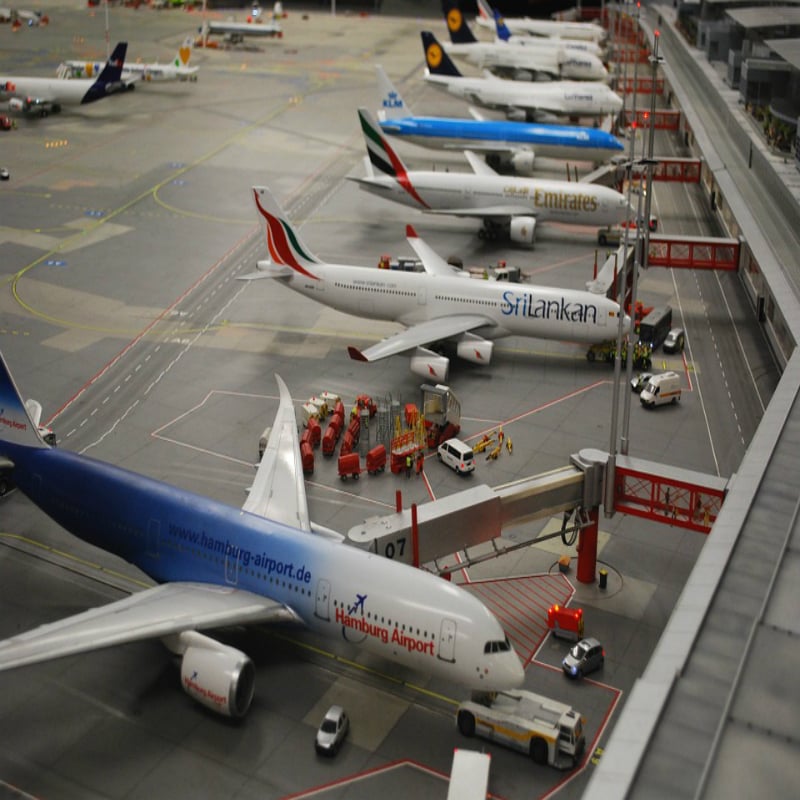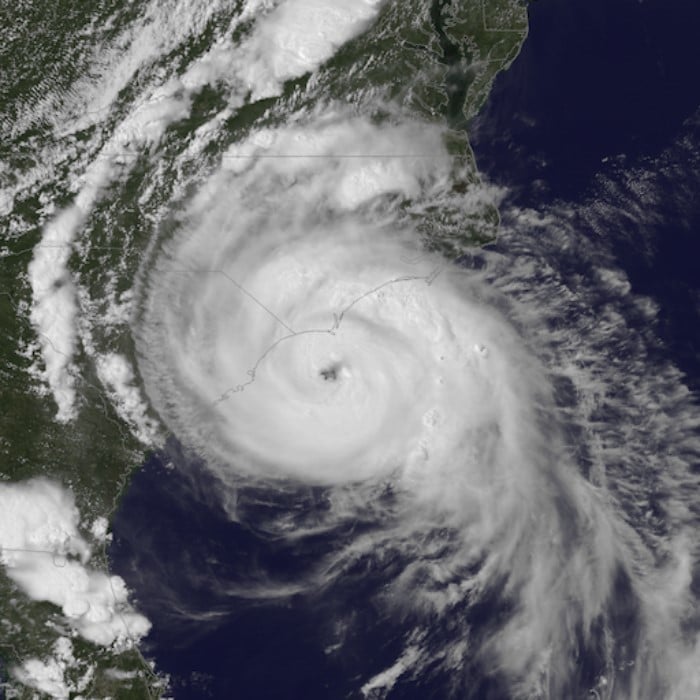Renewable energy is growing in popularity across the globe, and with good reason—the benefits of renewable energy sources are widespread. Finding alternative energy sources that don’t require the use of fossil fuels can lower energy costs for consumers, create more stable and reliable energy prices, and make electricity more available throughout the world. Furthermore, climate change is proving to be a very expensive ordeal—costing $240 billion in economic losses in the United States alone—and renewable energy has a significantly smaller impact on climate change compared to the burning of fossil fuels. Clearly, investing in renewable energy has economic benefits. Let’s look at how three regions around the world are faring in their journey to use more alternative energy sources.
globalEDGE Blog Archive September 2019
Publish Date:
The Community College Course Syllabi section was recently updated by the globalEDGE team. This section contains a list of International Business focused syllabi from different community colleges in the United States. Including a wide range of disciplines, make sure to check out and utilize the Community College Course Syllabi resources to develop or enhance international business courses, as well as to gain knowledge as an educator.
Publish Date:
This year Halloween doesn’t just have everyone scared from horror movies and ghosts, but also the newest Brexit deadline. The United Kingdom is projected to leave the European Union in just over a month, and they still have no planned deal for a quiet exit. With Boris Johnson suspending Parliament, the question stands of how a “No Deal Brexit” will hurt other countries and Globalization.
Publish Date:
It’s undeniable that the internet has dramatically altered the world. From expanding access to new information to revolutionizing the entertainment industry, practically no element of modern culture and life has been untouched. With over 4 billion people (or 55.1% of the global population) using the internet, more and more importance is being placed on the digital landscape. At a time where television is losing 33 million subscriptions over the course of 2018 in the United States alone, more and more advertisers are seeing potential in the digital sphere.
Publish Date:
Recently, big retail giants have been approaching their brick-and-mortar stores differently. Instead of following their traditional footsteps, companies have been looking into alternative ways to stay competitive in the digital economy and to attract a wider consumer base. This trend has just recently surfaced in the U.S., but for other countries, this has already been in practice for many years. In areas with dense population and expensive rents, it is very typical for retailers to downsize. It allows the company to operate without incurring an unreasonable amount of fixed expenses. Best of both worlds, it offers convenience to customers while staying competitive amongst other retailers.
Publish Date:
The world population continues to grow at a rapid rate, currently sitting at over 7.5 billion people. With each individual comes the necessity for resources that foster survival and growth—mainly, humans need food and water. As society continues to expand to an astounding size, how much food is really needed to meet our growing needs?
Publish Date:
Thomas Philippon, French native, moved to the United States in 1999 to pursue a graduate’s degree. While in the U.S., he noticed that cell phone plans and airfare were much more expensive in comparison to the prices in France. Twenty years later, he discovered that these prices were not only lower in France, but in Europe and Asia as well.
Publish Date:
The month of September began with a sudden evacuation for many residents of the Bahamas and southeastern parts of the United States. The slow-moving Hurricane Dorian began its course of destruction with severe flooding and winds the first week of September. In the Bahamas alone, authorities predict it will take billions of dollars to repair the damages created by the hurricane. A country can prepare all they can for a hurricane—whether that means boarding up houses and stores, packing up belongings, or evacuating—but an economy can never be prepared for the deadly effects of a hurricane.
Publish Date:
A CNBC report in late August reported the looming challenges that currently face the fast-food industry: high turnover rates. At Panera Bread, the employee turnover rate has reached 100%, a figure that is surprisingly low in comparison to industry estimates, which top 150%. A 2013 study by Cornell’s Rosemary Batt, a Professor in Human Resource Studies and International and Comparative Labor, estimated that businesses incur losses of approximately $1,600 per employee due to turnover. The rising minimum wage is also significantly impacting the fast-food industry, and forcing organizations to reconsider how they do business.
Publish Date:
Advertising is – and always has been – an ever-changing and evolving way to market goods and services. As new types of media have developed over time, advertisers have had to make the leap from newspapers to television to websites as marketing platforms. Yet, there is a new type of advertising that is proving extremely useful to companies: social media influencers.
Publish Date:
Artificial Intelligence (AI) systems have been skyrocketing over the last ten years. With the emergence of Google’s Siri, Amazon’s Alexa, and other informational AI's, companies continue to try and advance their offerings to be compatible with these tech assistants. The newest breakthrough in AI technology occurred just this week.
Publish Date:
Everyone has heard off Apple, but there is a new tech giant sweeping the world. Huawei, a Chinese based company has surpassed Apple as the world’s top cellular-equipment maker, and they are only continuing to grow. Huawei is not a popular name because it currently is illegal in multiple countries due to spying and cyber theft accusations, but around the globe, it continues to grow. The problem with Huawei for the U.S. is that no matter what the U.S. does, it will continue to grow.
Publish Date:
The world has been gripping the edge of its seat watching the protests continuing in Hong Kong. Hong Kong has had a long and complex history with its relationship to China. 19th-century conflicts led to the colonization by Britain, removing the territory from Chinese control. Hong Kong was returned to China a century later, being allowed to control many of its own systems. The wildly different forms of government (Communist China as opposed to the limited democratic Hong Kong) have led to culturally and politically different regions. The 2019 protests have not been the first occasion where citizens of Hong Kong rallied against governmental decisions. In 2014, over 100,000 people protested Chinese intervention into their election process.
Publish Date:
As technology advances and connectivity increases, countries are closer to each other than ever. Economically, trade blocs have increased partnership among countries and encouraged production specialization. Politically, countries are moving towards a free market and competing for additional foreign investments. Recently, however, these trends seem to be going in a slightly different direction. Governments are encouraging more domestic investments and developments. A stronger sense of nationalism is developing while the term "globalization" now has a negative connotation to some audiences.
Publish Date:
Whether you call them soda, pop, coke, or fizzy drinks, soft drinks are popular across the globe and are defined as a carbonated, nonalcoholic beverage by the Merriam-Webster dictionary. The term soft drink was originally coined to distinguish flavored drinks from hard liquor, and the first soft drinks were marketed in the 17th century as a combination of lemon juice, water, and honey. Later, the first carbonated drinks appeared in the 18th century as health remedies. Today, soft drinks are mass-produced using a combination of water, carbonation, flavoring syrup, and bottling the product to sell to consumers.
Publish Date:
After a busy summer of international travel, work-related, and academic pursuits, the globalEDGE team is returning to Michigan State University for the 2019-2020 academic year. With six new members, the team anticipates sharing exciting, fresh ideas and information on the globalEDGE blog—again featuring a Monday through Thursday schedule. Our team will also be working diligently to update website content and provide users with comprehensive and useful business knowledge to accommodate their goals. We look forward to a great year!


















